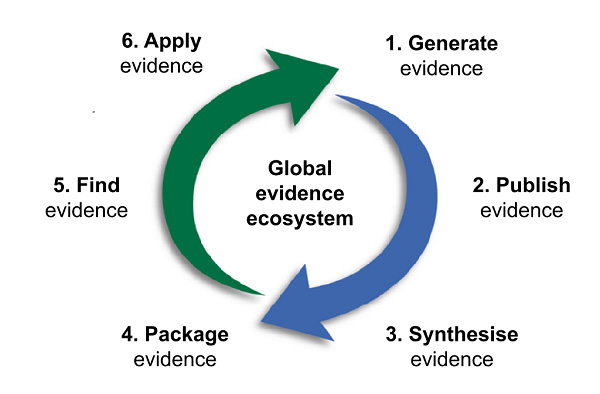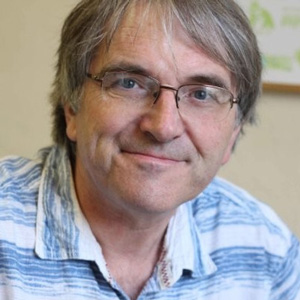Evidence is a prerequisite for global health equity
I’m Neil Pakenham-Walsh and I'm the co-founder and coordinator of Healthcare Information For All (HIFA) and I’m based near Oxford in the UK. My colleague is Vedant Jha, HIFA South East Asia Region Country Representative Coordinator, a final-year medical student based in Pune, India.
Let me begin with a quick anecdote about why I started HIFA. Many years ago, I was an isolated volunteer doctor in rural Peru. One day a woman arrived at my health post carrying a small bundle containing a little girl who had died 20 minutes earlier as her mother carried her from her home a few miles away. The medical cause of death was diarrhoea and this death was completely avoidable. The girl died because her parents believed that if a child has diarrhoea then you should stop giving them fluids. There is a logic to this false belief: less fluid in, less fluid out; most children will still recover.
A national survey in India found that more than half of children with diarrhoea were receiving less fluids or no fluid at all. Is it any wonder that over 1300 young children are still dying needlessly from diarrhoea every day worldwide?
Lack of reliable healthcare information contributes to avoidable death and suffering, not only for children, but for everyone, and not only because of diarrhoea, but because of all health conditions.
Lack of reliable healthcare information is an important factor for health workers too. The same study in India found that one in five children with simple diarrhoea are routinely prescribed antibiotics, which are not indicated and may be harmful to the child and contribute to antimicrobial resistance.
By ‘reliable healthcare information’, we mean that the information should not only be accurate and up-to-date, it should be supported by a high-quality systematic review of the available research. It should be relevant, understandable and it should be applicable to the person’s immediate situation.
How can we build a world where every person has access to the information they need to protect their own health and the health of others? Specific health information initiatives are important; so too are paradigm shifts, such as the open access movement and the increasing ubiquity of mobile phone and internet. But what is missing is a collective effort to strengthen the global evidence ecosystem as a whole.

The global evidence ecosystem represents the totality of actions to generate, publish, synthesise and apply evidence. Its purpose is to ensure that everyone has access to reliable and relevant healthcare information at all times. It includes the world’s researchers, publishers, systematic reviewers, knowledge brokers, librarians, health workers, patient representatives and more. By definition, the system isn’t working.
HIFA was launched in 2006 to strengthen three intrinsic weaknesses of the global evidence ecosystem: poor communication, poor understanding, and poor advocacy across the system, as described in a 2004 Lancet paper. It does this in a number of ways:
HIFA provides a virtual space for 20,000 stakeholders to interact 24/7 on virtual discussion forums in four languages, exploring the full range of issues relating to the availability and use of healthcare information. Join here.
We invite organisations to officially support our vision. More than 400 health and development organisations have signed up in support of the goal of universal access and we encourage others to do the same.
We encourage international professional bodies to stand up for universal access. For example, in 2019, the World Medical Association, which represents 10 million doctors, unanimously supported the goal of universal access.
Since last year HIFA has been working in official relations with the World Health Organization. Universal access is implied in WHO’s Constitution and it is arguably the most important provider of healthcare information and supporter of health information initiatives, such as Hinari. We believe that the WHO will soon commit explicitly to universal access and will take action towards this goal. The WHO is uniquely positioned to convene all stakeholders across the global evidence ecosystem system to determine how to strengthen the global evidence ecosystem and how to accelerate progress. HIFA stands ready to support this.
The time is right for the WHO to make an explicit commitment to universal access. It just needs a catalyst. The catalyst we need is a demonstration of solidarity for universal access from all stakeholders in the global evidence ecosystem.
HIFA has launched a global consultation in 10 languages to explore people’s perspectives on universal access, how we can achieve it and the role of the WHO.
We invite you to complete a five-minute survey on universal access to reliable healthcare information in partnership with the World Health Organization.

The more responses we can get, the greater our impact. The survey is open until 15 October 2023. Please add your voice. Please also forward this to others in your organisation and networks.
Evidence is a prerequisite for global health equity. In other words, the availability and use of reliable healthcare information determines whether you will live or die.
Together, we can achieve universal access to reliable healthcare information.
Authors
Neil Pakenham-Walsh and Vedant Jha
We are grateful to our lead sponsors: National Institute for Health and Care Research, Elsevier Foundation; bronze sponsors International League of Dermatological Societies, eCancer, CABI, Enablement, Instituto Antonio Vidal, International Primary Care Research Group; technical partners: JBI, Evidence for Global and Disaster Health (International Federation of Library Associations), Costello Medical Consulting.
This blog is based on a presentation given by Neil Pakenham-Walsh and Vedant Jha (HIFA SEARO Country Representative Coordinator) at the Cochrane Colloquium in London on 6 September 2023. You can see a 7-minute version of this presentation on the HIFA YouTube channel.
Disclaimer
The views expressed in this World EBHC Day Blog, as well as any errors or omissions, are the sole responsibility of the author and do not represent the views of the World EBHC Day Steering Committee, Official Partners or Sponsors; nor does it imply endorsement by the aforementioned parties.
